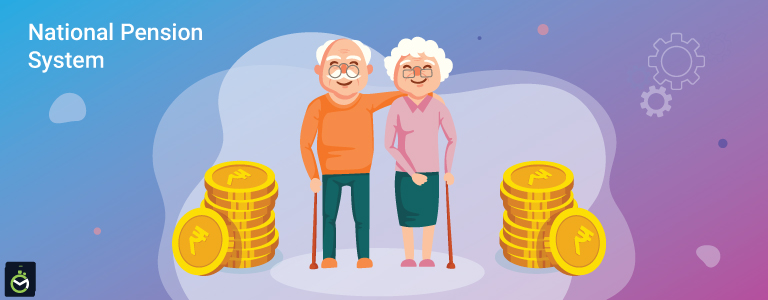
If you’re struggling to save up enough money to retire comfortably, you’re not alone. The majority of American workers are under-saved for retirement, and many don’t even have access to employer-sponsored retirement plans such as 401(k)s. In this article, we’ll discuss how the national pension scheme can benefit you now and in the future. If your company doesn’t offer one, you can still benefit from using an online version of the national pension scheme .
What to do before enrolling in NPS
If you’re thinking about enrolling in the national pension scheme (NPS), there are a few things you should do first. Make sure you understand how the NPS works and what your options are. You’ll also want to compare the NPS to other retirement plans to see if it’s right for you. Here’s what you need to know before enrolling in the NPS. First, make sure you understand how the NPS works. There are two types of schemes: The Tier I Ordinary Pension Scheme and Tier II Voluntary Pension Scheme. The Tier I Ordinary Pension Scheme is mandatory, so anyone who doesn’t already have an active retirement plan will automatically be enrolled in this one by default. It provides a fixed percentage of contributions every month until age 60 or the year when they stop earning income from employment.
How does the NPS work?
The National Pension Scheme (NPS) was introduced by the Government of India in January 2004 with an objective to provide old age income security to all citizens of India. The NPS offers a defined contribution pension system and is open to all Indian citizens between the ages of 18 and 60 years. Under the NPS, subscribers are required to contribute a minimum of Rs.1,000 per annum towards their pension account. Subscribers can choose any date of birth as the date on which they will start receiving benefits from their accounts at the time of retirement. Upon reaching the age of 60, subscribers will have an option to withdraw their funds in a lump sum or continue contributing for five more years without any returns. A subscriber can also opt for partial withdrawal when he/she reaches 50 years of age but has not yet retired from service or drawn his/her pension.
How much tax will I pay on NPS contributions?
NPS offers tax benefits under Section 80CCD(1) and Section 80CCD(2) of the Income Tax Act. Under Section 80CCD(1), the employee can claim a deduction of up to 10% of their salary (Basic + DA) or gross income, whichever is lower. This deduction is over and above the limit of Rs 1.5 lakhs that can be claimed under Section 80C.
Can I withdraw my NPS early?
You can make partial withdrawals from your NPS account starting from the seventh year after opening the account. However, you can only withdraw up to 25% of your corpus. If you want to withdraw before you turn 60, you will have to use 80% of your corpus to buy an annuity, which will give you a regular income during retirement. Once you turn 60, there are no restrictions on when or how much you can withdraw. The process of withdrawing money out of your NPS and purchasing an annuity is easy, but it’s best to talk with an advisor if you need help. The amount you’ll receive from buying an annuity depends on how much you withdrew and at what age, as well as the prevailing interest rates. For example, if I made a withdrawal at age 58 and bought my annuity with it at a rate of 7%, I would get around Rs1 lakh per month till I die. We encourage all our employees to sign up for our company-sponsored retirement plans like National Pension Scheme because they are tax-free savings schemes that let us save regularly towards our future needs.
How to invest in NPS?
The National Pension Scheme (NPS) is a retirement savings scheme designed to provide regular income post-retirement. The NPS offers several benefits that make it an attractive investment option, such as:
-Ease of investment: You can open an NPS account online in just a few minutes.
-Flexibility: You can choose how much money you want to contribute to your NPS account, and you can also change your contribution amount at any time. Additionally, there are no taxes on interest earned in the NPS. Withdrawals are only allowed after one turns 60 years old or after five years from when contributions have been made into the account. For example, if contributions have been made from 1 January 2014 to 31 December 2017, withdrawals will be allowed from 1 January 2024 onwards.
0 Comments